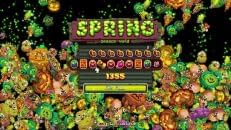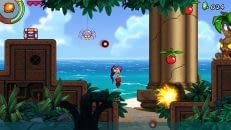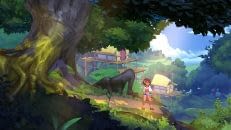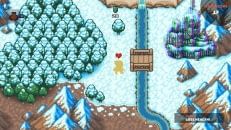Indie City Interview
A new distribution platform for indie games is on the way. IndieCity is coming this summer and will offer a unique sales portal to Indie Developers. Chris Swan of IndieCity answered our pressing questions and explains what makes IndieCity stand out.
IGM: What is IndieCity? How will it be different than Steam or other digital distributors?
Chris Swan: As a strapline IndieCity is meant to be the one-stop shop for all things indie gaming. Whereas the like of Steam and the other major portals all have their own approval systems that often aren’t obvious to the developers, and focus on mainstream titles. We’re going the other way, and aim to have EVERY indie game, but to not allow the mainstream. So a major point of focus for us is the long tail of game distribution. We want each gamer to get a personalized experience and be recommended the games that appeal to their particular niche of taste.
IGM: so if I’m an indie game developer, I can get my game on IndieCity – no problem?
Chris Swan: Yep. We are going to have a peer review system, to check that the game is virus free, has appropriate screenshots etc.
IGM: So you’re making a site dedicated just to selling games from indie developers?
Yes and a great side effect of creating an indie-only site is that we’re able to bring indie devs together, which allows us to provide additional services. So far we’ve already held a couple of marketing workshops where the devs decide on the agenda and we collectively discuss the issues, and we’re looking forward to hosting more of these. Then there’s the developer-only subsite of IndieCity that is being filled up with useful guides and FAQs such as how to best work with the press, how to make your XBLIG game PC friendly, legal advice etc.
IGM: Are you only selling paid games?
No. We could never become a one-stop shop for all thing indie gaming if we didn’t support free games, but at the same time we can’t afford to soak up all of the hosting costs of free games with our minimal revenue share. Our solution is to therefore provide a game download client that allows the community to opt-in and help share the up/downloads of the games. By reducing our overheads in this manner we’re also then able to support free games and in-progress versions too.
IGM: So you’ll actually be hosting unfinished games too?
Yes. Our plan is to allow for as many business models as possible for the developers, and our download client really helps with this flexibility. We’re creating a whole other section of the site called the IndieCity Underground, which is going to be like the Wild West of indie games. This site is where developers first put their games, which can be at any stage of development and either given away free for feedback or sold. We’re currently calling this the Pay to Finish model, which Notch did so famously well with Minecraft, and believe it could be very successful for developers who want to get a community on board early and involve them in development. We’re also looking to allow the platform to provide feedback mechanisms such as automatic bug databases and forums per game. When developers are happy with the version of their game, they can then flag it to go on the main site, at which point the lead users will review the game and check it plays ok, doesn’t crash too often, allows alt-tabbing etc.
IGM: It’s great to allow everything on your service, but how will you be sure that the ‘best’ games rise to the top
Chris Swan: Aha, that’s where the recommendation engine kicks in. All of the other portals (including XBLIG) focus on serving the same front page to every gamer. And there’s a great battle to get on those pages no matter what the massive discount that will be required. But we’re going in the opposite direction, and will give each person their own homepage showing the games that will appeal to them.
IGM: What type of Rev Share will you be offering indie game developers?
Chris Swan: We’re aiming to give the best possible revenue share to indie devs, while still being able to keep the site running. So if you integrate with our wrapper the developer will get 85% of the revenue (after card processing fees) and 75% if they don’t integrate. The reason for the difference is that we want devs to use our wrapper and offer our leaderboards and achievements for as many games as possible. The more games that offer this, the higher our expected customer retention rate, and the lower the revenue we need to keep up and running.
IGM: so will you have your own achievement system and download client (like steam and Desura)
Chris Swan: Kind of. We’ll have our run-time libraries that allow for leaderboards and achievements. And the launcher will work a bit like a boot-strapper to do the digital hand-shake so that it knows who you are.
IGM: So IndieCity will feature a recommendation system, but will it also feature and indie reviews, news, daily deals, etc?
Chris Swan: Well the absence of any publishers means that we can focus on making the developers the stars of the show and allow them to engage with their audiences. So we’re aiming to provide a blogging platform for the devs that also slots into the recommendation engine.
IGM: can developers link to their own website and blog?
Chris Swan: Yep. If possible we want them to also be able to pipe their site feed into IndieCity too. So that gamers can become fans of either developers or their particular games, and get pushed updates as and when they occur.
IGM: What’s your favorite indie game right now? What would be on your Indie City homepage?
Chris Swan: Good question! Given the heavy number of hours I’ve put into Minecraft over the last 6 months I think some of those clones would be there: Ace of Spades for one plus feeds of games like Terraria and bright flashy games such as Neon Lights. I have fallen for the trailer of Proun too, so that would probably be on there. Aside from falling for Minecraft, I’m mainly into seeing just what games can do, and believe that I’m only going to find this from the indie game scene. I’m not a fan of formulaic re-runs, which the mainstream offers all too often.
IGM: What is your favorite game of all time? Or what game did you love as a kid that led you to work in the games industry?
Chris Swan: For me it’s probably a toss-up between Skool Daze on the ZX Spectrum, and Dungeon Master on the Atari ST. I truly dread to think the number of hours I’ve spent playing Dungeon Master. I completed it again last year when I was off sick for a few days! Eilte was awesome too back in its day…
IGM: Other than publish your indie game to IndieCity, what advice would you give Indie Developers?
Chris Swan: It depends what kind of indie developer I’m talking to. If it’s someone who seriously wants to earn a living by making indie games then I would tell them to focus on the marketing. And be prepared to spend a large amount of their time doing this. Too many great devs spend all their times with their heads down coding and then pop up with a finished game at the last minute and there’s no hype, no build up, no initial lead user base. If I was talking to indie devs who love the act of making the game itself I think I would have less advice to give. Except to not listen to much advice and keep their craft pure! 😉
IGM: When can we expect to see IndieCity launch?
Chris Swan: Well we’re in a closed beta test at the moment with a handful of our lead users. We’ll be opening up the flood gates to the developers around June, and then to the gaming public in July







